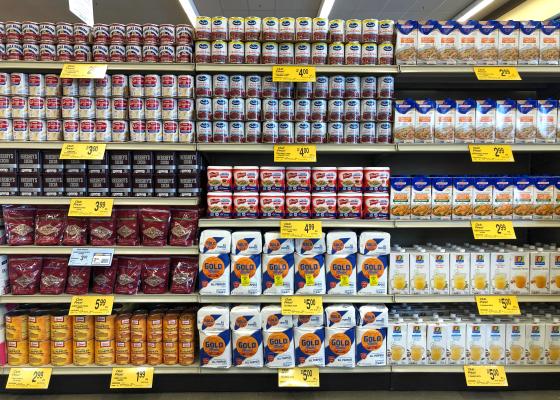Tracking availability of popular Thanksgiving products, IRI pegs stock pressures in at least five categories.
By Lynn Petrak|Senior Editor
Source: progressivegrocer.com, October 2021
New IRI data reveals category shortages, portends fewer promotions
As stories continue to swirl about product shortages, supply chain disruptions and even potential hoarding, Chicago-based market research firm IRI is tracking the availability of core grocery items for the upcoming Thanksgiving holiday.
“Halloween season is shaping up nicely with the category growing in double digits, and we are recording significant out-of-stock rates on several Thanksgiving-related grocery categories at this time,” summed up Dr. Krishnakumar S. Davey, IRI’s president of client engagement.
Indeed, shoppers who are already picking up Thanksgiving supplies like canned pumpkin and stuffing may be rightfully proactive. IRI’s data for the week ending Oct. 19 shows that the availability of Thanksgiving staples of whipped toppings, liquid gravy, frozen pie/pastry shells, refrigerated pies and bakery pies are between 5 and 11 percentage points lower this week than the same time last year, and between 1% and 9% lower than the recent two-month average. The data also foreshadows “availability risk” for peak November items including cranberries and stuffing.
Retailers’ promotional and pricing activities reflect market worries and realities about out-of-stocks. Information from IRI shows that retailers are running between one and nine percentage points fewer promotions for the vulnerable categories of whipped topping, liquid gravy, frozen pie/pastry shells, refrigerated pies and bakery pies. Prices in those categories are up 3.6% over this time last year, the company found.
Accordingly, shoppers can expect fewer retailer promotions as Thanksgiving – a food-centric occasion for which most people buy the same or similar products – gets closer. As IRI keeps tabs on that holiday’s core products, the firm concluded that food retailers will have less incentive to promote due to high demand and low in-stock rates.

